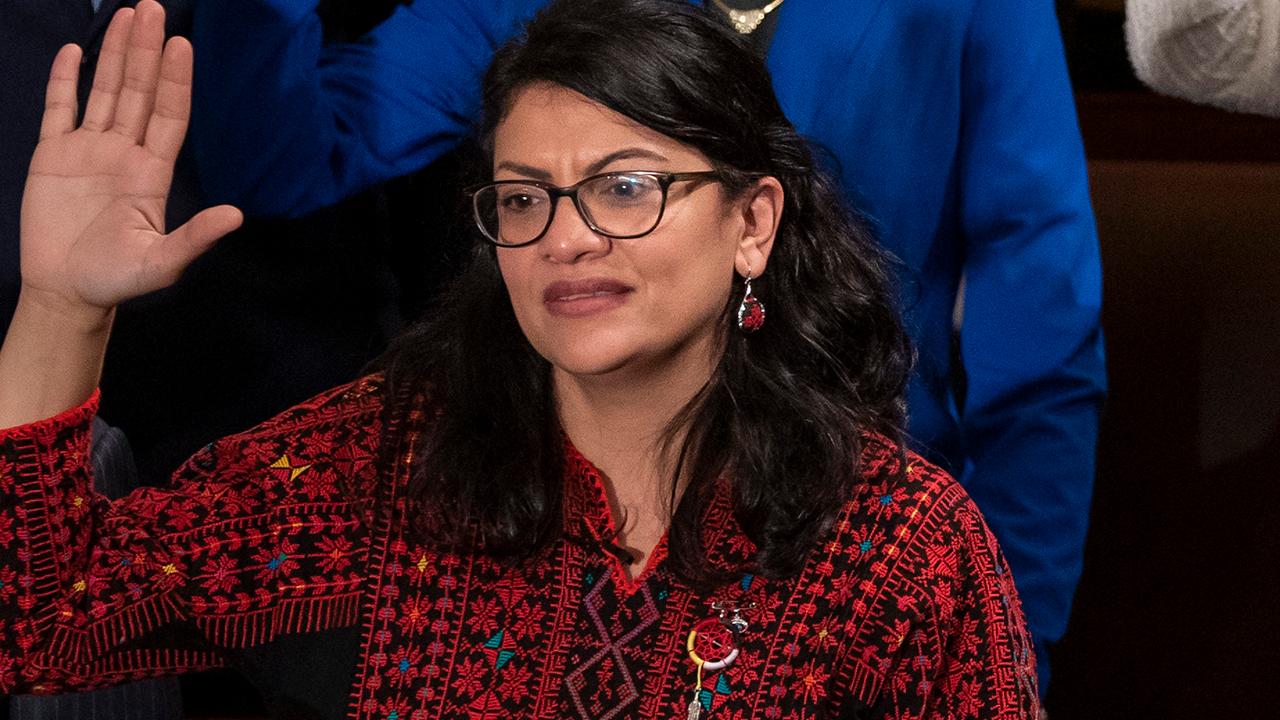
Rep. Rashida Tlaib (D-Mich.) said in a statement she will not visit Israel “under these oppressive conditions,” even though her humanitarian request to visit her grandmother, who lives in the occupied West Bank, had been approved. Tlaib’s decision comes a day after Israel had barred her and another congresswoman from entering the country.
– Israel has reversed its decision to bar a visit to Israel by a U.S. congresswoman.
The interior ministry said Friday it will allow Representative Rashida Tlaib to visit on “humanitarian” grounds to see her Palestinian grandmother.
Israel said Thursday it would not allow Tlaib and Rep Ilhan Omar to enter the country, setting off a new round of controversy in the debate over U.S. support for its ally in the Middle East.
Omar was not mentioned in Israel’s announcement Friday.
The two Democratic lawmakers have been vocal critics of Israel and its treatment of Palestinians. They were set to visit Israel and several cities in the West Bank.
Israeli Deputy Foreign Minister Tzipi Hotovely told public broadcaster Kan on Thursday, “We won’t allow those who deny our right to exist in this world to enter Israel. In principle, this is a very justified decision.”
U.S. President Donald Trump tweeted shortly before Thursday’s announcement, writing, “It would show great weakness if Israel allowed Rep. Omar and Rep. Tlaib to visit. They hate Israel & all Jewish people, & there is nothing that can be said or done to change their minds.”
Later in the day, Trump defended the Israeli decision. “I can’t imagine why Israel would let them in,” he said, repeating that the two lawmakers were “very anti Jewish and very anti Israel.”
House Speaker Nancy Pelosi said the president’s comments “are a sign of ignorance and disrespect, and beneath the dignity of the Office of the President.” Pelosi reaffirmed her love of Israel but said the move to deny entry to Omar and Tlaib “is a sign of weakness, and beneath the dignity of the great state of Israel.”
Omar and Tlaib’s frequent criticism of Israel has drawn accusations of anti-Semitism for months. Omar was condemned by the congressional leadership in her own party for invoking an offensive trope about Jews and money in social media postings earlier this year.
Omar said the Israeli government’s ban on her entry into the country prevented her from fulfilling her duties as a member of the U.S. Congress.
Tlaib tweeted a photograph of her Palestinian grandmother, who she said “deserves to live in peace & with human dignity.”
Omar and the Palestinian-American Tlaib are supporters of BDS (Boycott, Divestment, Sanctions), a nonviolent movement that seeks to economically pressure Israel into ending its occupation of the West Bank, among other goals. Some advocates of BDS support a single-state solution that critics say would lead to the destruction of the Jewish state.
The freshman members of Congress have repeatedly presented a challenge for the House Democratic leadership, as their outspoken statements on U.S. policy in the Middle East have drawn Trump’s attention.
Omar and Tlaib were two of four House Democratic freshman members of color whom the president has said should “go back” to their home countries. Omar — a naturalized U.S. citizen from Somalia — is the only one of the four who was born outside the United States. The president’s supporters chanted, “Send her back” after Trump mentioned the congresswoman at a rally earlier this year. The president later said he did not like those chants.
The Democratic-led U.S. House of Representatives passed a resolution in July condemning the BDS movement. Both Omar and Tlaib voted against that resolution


















